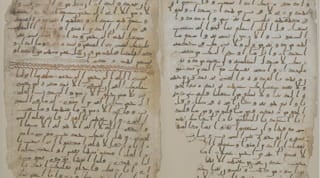Research Methodology in Islamic Studies
About the Course
This Research Methodology course is a hands‐on course designed to impart education in the foundational methods and techniques of academic research in Islamic religious studies and social sciences. Students will examine and be practically exposed to the main components of a research framework generally and from an Islamic perspective i.e., problem definition, research design, data collection, Islamic ethical issues in research, report writing, and presentation. Once equipped with this knowledge, participants would be well‐placed to conduct disciplined research in areas of their choosing related to Islamic sciences and humanities.
In addition to their application in an academic setting, many of the methodologies discussed in this course will be similar to those deployed in professional research environments and beyond as this course will present Islamic philosophies around knowledge and research methodology.Teaching methods include readings, lectures, group discussions, exercises, and assignments. Lectures are designed such that ensure greater scholar participation.
Students will be equipped with qualitative and quantitative research method skills and theoretical knowledge in general, and for use in Islamic studies in particular. These skills are essential for the students throughout their career as an academic and researcher as well as general life skills. Additionally, it will train students on how to investigate and design a research problem from start to finish using appropriate methodology and how to present their research outcome effectively in their area of expertise as well as broader areas. As such, students are provided with the opportunity to apply their learning to a subject matter of their own choice in the field of Islamic studies, while increasing awareness about various types of resources that will be of use during the course of their studies.
Main Modules

1. Introduction to Research
- Introduction to course
- Importance of Research Methodology
- The role of research in Islamic Studies and Humanities
- Research process overview

2. Research Methodology in Islamic Studies
- Six major themes, Quran Studies, Hadith Studies, Usul al-Din (principles of faith), Fiqh (Jurisprudence) Sirah (biography) and Tarīkh (civilization)
- Research methodology of Fuqaha’ (Jurists),
- Research methodology in Usul al-Din
- Research methodology in Hadith and Civilization

3. Philosophies and the Language of Research Theory Building
- Science/ Theologyand theirfunctions,
- What is theory?
- The meaning of methodolog

4. Thinking like a Researcher
- Understanding Concepts,
- Understanding Constructs,
- Understanding Variables,
- Definitions

5. Problems and Hypotheses
- Defining the research problem,
- Formulation of the research hypotheses,
- The importance of problems and hypotheses

6. Research Design
- Experimental and Nonexperimental research design,
- Field research,
- Survey research

7. Methods of Data Collection
- Secondary data collection methods,
- qualitative methods of data collection,
- Survey methods of data collection

8. Attitude Measurement and Scaling
- Types of measurement scales;
- Questionnaire designing
- Reliability and Validity

9. Sampling Techniques
- The nature of sampling,
- Probability sampling design,
- Nonprobability sampling design,
- Determination of sample size

10. Using the Internet and Software for Research in Islamic Studies
- Planning
- Where and how to look
- resources inIslamic studies(Englishand Arabic)
- recognising authenticity

11. Processing and Analysis of Information and Data
- Acquiring Data
- Data Processing
- DataAnalysis

12. Islamic Ethical issues in Conducting Research
- Harm Considerations
- Privacy / Confidentiality Considerations
- DeceptionConsiderations
- Ethics and Quantitative Considerations
- Ethics and Qualitative Considerations
- Plagiarism Considerations

13. Islamic Hermeneutics and Islamisation of Knowledge
- What is Islamisation of Knowledge
- What is Hermeneutics and Its Importance
- Application of Hermeneutics
- Islamic Hermeneutics
- Applied Islamic Hermeneutics and Research
- Islamic Social Sciences

14. Report generation
- report writing, and APA format –
- Title page,
- Abstract,
- Introduction,
- Methodology,
- Results,
- Discussion,
- Referencesand Appendices
Who is it for ?
This course is suitable for ‘Ulama, students of knowledge and anyone interested in academic research from an Islamic perspective and who has an interest in Islamic studies. This course is unique and ideal for those who wish to have a much broader, specialist understanding of the art of Islamic research methodology, professionally that can be applied to a broad range of disciplines.



Learning Objectives
- develop understanding of the basic framework of research process.
- develop an understanding of various research designs and techniques.
- identify various sources of information for literature review and data collection.
- develop an understanding of the Islamic ethical dimensions of conducting applied research.
- Appreciate the components of Islamic scholarly writing and evaluate its quality.
Frequently Asked Questions
How is this online course structured?
Is it mandatory to attend live sessions?
I have doubts but I cannot attend the live session. Any other way to ask my questions?
When will the final exam be held?
The Final Exam will be held at the end of the course and will be a graded and timed exam.
Will I get notification for live sessions?
Can I download the recordings and watch it offline?
Do I get marks for watching course recordings and presentations?
I missed a live session. Can I get the video recordings?
How do I interact with my classmates?
How long will I have access to the online course?
I am facing trouble signing into my private member portal. What should I do?
Does Al Balagh Academy issue certificates?
When will the final exam be held?
What is the eligibility criteria for Scholarship?
If you are still facing issues, kindly contact our helpdesk team at [email protected].
Download MyAlBalagh mobile app from Playstore or Appstore to play or download (for offline viewing) all the completed recordings and PPT.
When will I have access to the online course material?
Learn More About Our Courses?
Discuss your opinion with one of our friendly advisers
